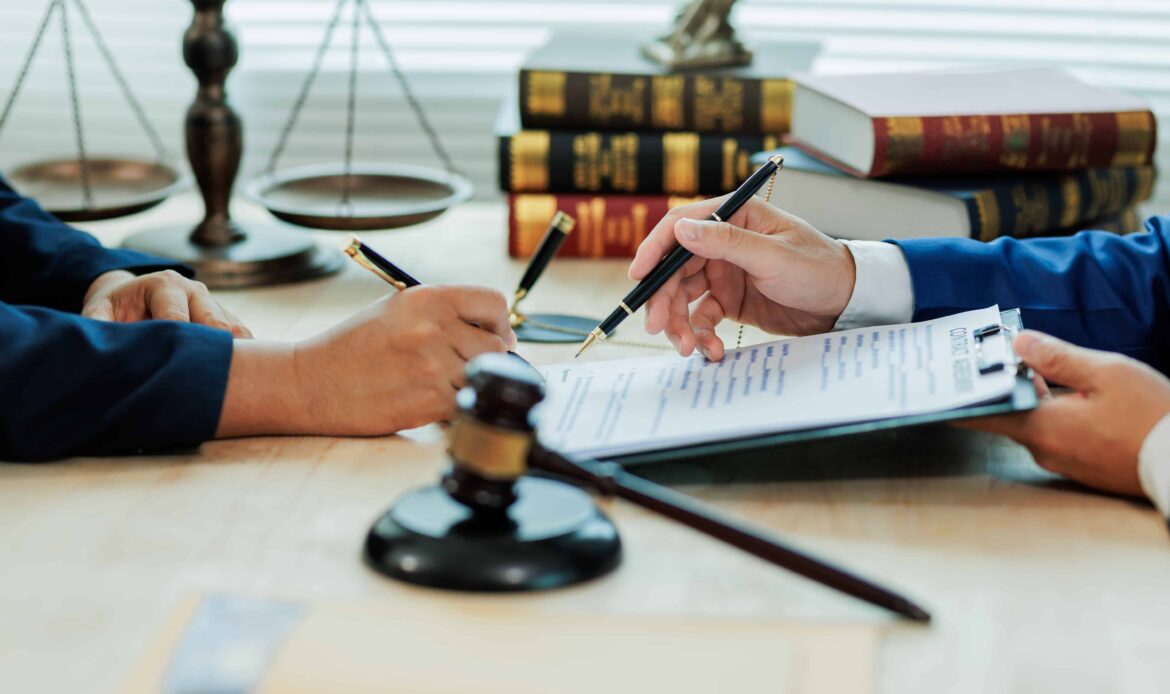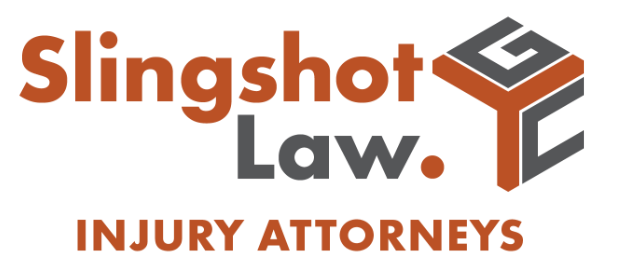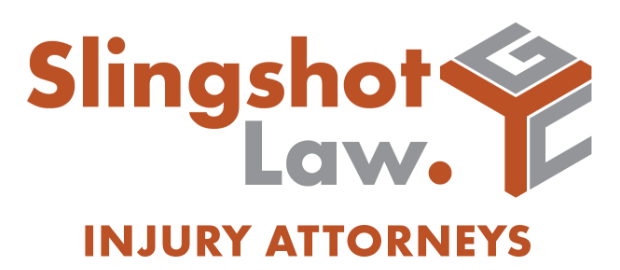The noise has faded, the smoke has cleared, but the immense weight of the collision remains. A crash involving an 18-wheeler is far more than a simple fender-bender; it’s a traumatic event followed by a high-stakes legal battle. You are left managing severe physical injuries, mounting medical bills, and intimidating phone calls from adjusters whose primary goal is protecting their company’s bottom line.
When your life has been impacted by a serious crash, the question of what to do after a truck accident can feel insurmountable. You deserve a clear path forward, and the first critical steps you take are vital to building a foundation for justice and accountability.
Key Takeaways about What to Do After a Truck Accident
- A person’s first priority after a truck accident is seeking comprehensive medical evaluation and ongoing care, even for seemingly minor injuries.
- Commercial truck accidents are legally distinct from typical car crashes due to complex federal regulations and the involvement of multiple potentially liable parties.
- Preserving all forms of evidence, including medical records, photos from the scene, and a personal journal detailing daily impacts, is fundamental to a potential claim.
- Communicating with insurance companies requires caution; it is often advisable to consult with a legal professional before providing recorded statements or accepting early settlement offers.
- Compensation in a truck accident case can cover both economic damages, such as medical bills and lost income, and non-economic damages, like pain and suffering.
The First Steps at Home: Prioritizing Your Health and Well-being
Even if you received medical attention at the scene or in the emergency room, your health journey is just beginning. The adrenaline from a crash can mask serious injuries that only become apparent hours or days later. It is absolutely essential to schedule a follow-up appointment with your primary care physician.
This visit serves a dual purpose. First and foremost, it ensures you receive a thorough evaluation for conditions like whiplash, concussions, or internal injuries that may have been missed. Second, it creates a formal medical record that documents the connection between the accident and your injuries. Be completely honest with your doctor about all your symptoms, no matter how small they seem.
Your well-being isn’t just physical. A traumatic event like a truck accident can take a significant emotional toll. Pay attention to your mental health. It’s normal to experience anxiety, trouble sleeping, or fear of driving. Seeking support from a therapist or counselor is a sign of strength and a vital part of a complete recovery. Remember to follow all prescribed treatment plans, attend physical therapy, and keep every medical appointment.
Why Commercial Truck Accidents Are So Different

A crash involving a semi-truck is not just a bigger version of a car accident; it’s a completely different category of incident from a legal and investigative standpoint. The trucking industry is a massive, multi-billion-dollar business governed by a web of complex rules. This detail is one of the main reasons that figuring out what to do after a truck accident can be so challenging.
Unlike a crash between two personal vehicles, where you are typically dealing with another driver, a truck accident can involve several responsible parties.
- The Truck Driver: Was the driver fatigued, distracted, or operating under the influence?
- The Trucking Company (Motor Carrier): Did they fail to properly train the driver, perform background checks, or enforce safety rules?
- The Maintenance Provider: Was the truck’s equipment, like its brakes or tires, faulty due to negligent repairs?
- The Cargo Loader: If improperly secured cargo shifted and caused the crash, the company that loaded the trailer could be at fault.
- The Truck Manufacturer: In some cases, a defective part on the truck itself could be the root cause of the accident.
Identifying all the potential sources of liability requires a deep and thorough investigation, which is often beyond the scope of a standard police report.
Understanding Federal Motor Carrier Safety Regulations
To keep our roads safe, the federal government has specific rules for trucking companies and their drivers. The Federal Motor Carrier Safety Administration (FMCSA) sets these standards. When these rules are broken, it often leads to devastating accidents.
Some of the key regulations include:
- Hours-of-Service Rules: These laws limit how many consecutive hours a driver can be on the road to prevent driver fatigue, a leading cause of truck crashes.
- Maintenance and Inspection Requirements: Trucking companies must keep detailed records of all vehicle maintenance, inspections, and repairs to ensure their fleet is safe.
- Driver Qualifications: Companies are required to ensure their drivers are properly licensed, trained, and have a safe driving record.
- Drug and Alcohol Testing: Strict protocols are in place for testing drivers to prevent impaired operation of these massive vehicles.
Violations of these federal regulations can serve as powerful evidence that a trucking company’s negligence contributed to your injuries.
Gathering and Preserving Crucial Information

While you focus on healing, it’s also important to begin collecting and protecting information related to the accident. Evidence in a truck accident case can be fragile. Trucking companies and their insurance carriers have teams that start their own investigations immediately, and their goal is to minimize their financial responsibility. Protecting your own evidence is a critical step in leveling the playing field.
What Evidence Should You Protect?
Try to gather and keep everything related to the accident in a safe, organized place. This file will become an invaluable resource as you move forward.
- The Official Crash Report: You can typically request a copy of the police report from the responding law enforcement agency, such as the Austin Police Department or the Colorado State Patrol, a few days after the incident.
- Photos and Videos: Any pictures or videos you or a witness took at the scene are incredibly important. They capture road conditions, vehicle damage, and the positions of the vehicles in a way that words cannot.
- Contact and Insurance Information: Keep the details you exchanged with the truck driver and the contact information for any witnesses.
- Medical Records and Bills: Maintain a complete file of every doctor’s visits, medical bill, prescription receipt, and therapy session.
- Proof of Lost Income: Keep pay stubs and a letter from your employer detailing the time you missed from work and the wages you lost as a result of your injuries.
This collection of documents helps to tell the full story of the accident and its impact on your life.
The Importance of a Personal Journal
Beyond the official documents, one of the most powerful pieces of information can come from you. Start a simple daily journal to track your recovery. This isn’t just about your physical pain; it’s about the overall impact on your daily life.
Make notes about your pain levels, your emotional state, and any activities you can no longer do or that have become difficult. Did you miss a family gathering because of your injuries? Are you unable to enjoy a walk along Lady Bird Lake in Austin or hike on the Colorado National Monument trails near Grand Junction like you used to?
These details paint a clear picture of your “non-economic” damages and are essential for showing the true extent of your losses.
Navigating Communication with Insurance Companies
Shortly after the accident, you will almost certainly receive a call from an insurance adjuster representing the trucking company. It is vital to understand that this person is not on your side. Their job is to protect their company’s interests and resolve the claim for the lowest possible amount.
Be polite, but be careful. You can provide basic information, like your name and contact details, but you are not obligated to give a detailed, recorded statement about the accident or your injuries. These statements can easily be taken out of context and used against you later.
Here are a few key things to remember when an adjuster calls:
- Do not admit any fault for the accident, even if you are unsure of the details.
- Do not downplay your injuries. Avoid saying “I’m fine” or “I’m okay.” It’s better to say you are still receiving medical care.
- Do not sign any documents or accept a settlement offer without fully understanding your rights and the long-term costs of your injuries.
An early settlement offer might seem tempting, especially when medical bills are piling up. However, these initial offers rarely account for future medical needs, ongoing lost wages, or the full measure of your pain and suffering.
Understanding Your Right to Compensation in Texas and Colorado

If someone else’s negligence caused your injuries in a truck accident, you have the right to seek compensation for your losses. This compensation, legally referred to as “damages,” is generally broken down into two main categories: economic and non-economic. The goal is to make you “whole” again, at least from a financial perspective.
It’s also important to be aware of the “statute of limitations,” which is a legal deadline for filing a lawsuit. In Texas, you generally have two years from the date of the accident to file a personal injury claim. Colorado law also sets a time limit, which is typically two years for traffic accidents.
Economic Damages: The Tangible Costs
These are the direct, calculable financial losses you have suffered because of the truck accident. They are documented with bills, receipts, and financial statements.
- All past, present, and future medical expenses
- Lost wages and income from being unable to work
- Loss of future earning capacity if you cannot return to your previous job
- Property damage to your vehicle and personal belongings
- Rehabilitation and physical therapy costs
These damages form the financial foundation of a personal injury claim.
Non-Economic Damages: The Intangible Impact
This category covers the profound, personal, and non-financial ways the accident has affected your life. While harder to assign a dollar value to, they are just as real and just as important.
- Pain and suffering
- Emotional distress and mental anguish
- Loss of enjoyment of life
- Physical impairment or disfigurement
- Loss of consortium (the impact on your relationship with your spouse)
These damages acknowledge the human cost of the accident and are a critical component of achieving a fair and just outcome.
The Role of a Truck Accident Attorney in a Truck Accident Case
Trying to manage the aftermath of a commercial truck accident on your own means facing off against powerful corporate and insurance interests. A truck accident lawyer who has handled these complex cases acts as your advocate and guide through the legal process.
An attorney and their team can immediately begin their own investigation, sending out preservation letters to ensure the trucking company does not destroy critical evidence like the driver’s logbooks or the truck’s “black box” data recorder. They work with accident reconstructionists and medical professionals to build a strong case that demonstrates liability and proves the full extent of your damages. They handle all communications with the insurance companies, protecting you from aggressive tactics and allowing you to focus on what matters most: your recovery.
Ultimately, a legal team’s role is to ensure you have a fair fight. They work to hold negligent drivers and trucking companies accountable and to secure the resources you need to rebuild your life and get back on your feet.
Truck Accident FAQs
Here are answers to some common questions that arise in the days and weeks following a serious commercial truck crash.
The police report says I was partially at fault. Can I still have a case?
Yes, in many cases you can. Both Texas and Colorado use a “modified comparative fault” rule. This means you can still recover damages as long as you are not found to be 50% or more responsible (in Texas) or 50% or more responsible (in Colorado) for the accident. Your potential compensation would be reduced by your percentage of fault.
How long will a truck accident case take to resolve?
The timeline for a truck accident case varies widely depending on its complexity, the severity of the injuries, and whether the insurance company is willing to negotiate fairly. Some cases can be settled in a matter of months, while others may take a year or longer, especially if a lawsuit needs to be filed.
What information is on a truck’s “black box” and why is it important?
A truck’s Electronic Data Recorder (EDR), or “black box,” records critical data from the moments just before, during, and after a crash. This can include the truck’s speed, braking activity, steering inputs, and other information that can be vital in proving what caused the accident. This data can be overwritten or lost, so it’s essential to have a legal team act quickly to preserve it.
We’ll Handle the Fight. You Focus on Healing.
After a truck accident, knowing your rights and the steps you need to take can empower you. While you focus on your physical and emotional healing, let a dedicated legal team take on the burden of the fight against the insurance giants.
At Slingshot Law, we are committed to being the game-changing weapon in your battle. Our attorneys have experience fighting for people in Austin, Texas, and Grand Junction, Colorado, who have been harmed by the negligence of others.
If you or a loved one has been injured in a commercial truck accident, contact us today at (866) 647-1311 or through our online form for a free, no-obligation case review. Let us help you get back on your feet.


